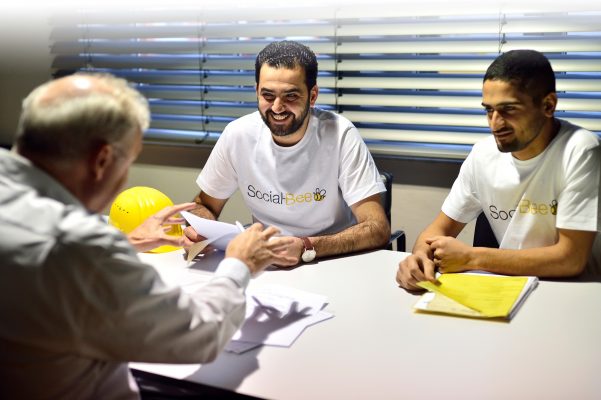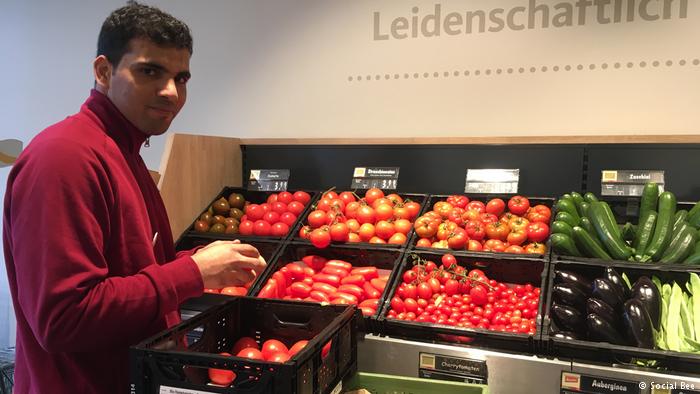By Natascha Elbech
More than five hundred thousand refugees are currently seeking employment in Germany. Upon arrival, refugees are confronted with a new challenge – resettlement – and must navigate their new surroundings without knowledge of the language and culture or access to basic social, financial, and medical services. In 2015, Germany welcomed over one million refugees, but since then, the migration crisis has put immense pressure on German public institutions and has challenged public opinion of this wave of newcomers. Zarah Bruhn, Ashoka Fellow and co-founder of Social-Bee, implores Germany to “wake up” and start looking at refugees as a source of opportunity, rather than as a burden on society.
Munich-based startup Social-Bee works to make the transition into the labor market as smooth as possible, both for refugees and their employers. Social-Bee’s model is simple – it operates as a temporary employment agency, contracting refugees out to partner companies after they complete a one-year integration program. As many refugees come to Germany already with technical skills, Social-Bee hones in on the soft skills and further qualifications that make a competitive applicant and desirable employee. Partners pay a fee that covers the salary of the refugee employee and the costs of the integration program, which includes German language courses and vocational training. Social-Bee also takes on all of bureaucratic work associated with hiring, including managing visa and asylum applications. After completing the program, companies can then take refugees on into full time positions.

Social-Bee challenges the systemic discrimination that renders migrants and refugees unemployable. As an “integration service provider”, Social-Bee hopes that business will give refugees a chance by investing in their personal and professional development as they advance through the training program. The program’s success comes from its ability to empower refugees and break down the bureaucratic barriers that make linguistically and technically capable candidates inaccessible to employers. In collaboration with big retailers like Aldi and IKEA and local manufacturing and textile firms, Social-Bee has helped bridge the gap between refugees and potential employers in Munich.

“We realize that this is provocative,” Bruhn said in an interview with Deutsche Welle. “Refugees do not want our pity – they are proud of their accomplishments.” Since 2016, Social-Bee has helped 50 refugees obtain permanent positions in German companies, and plans to scale their model to Stuttgart, Germany’s manufacturing hub, to help employ 1,000 more people in the next three years. Social-Bee stands out from other refugee relief organizations in Germany, because of its mission to give everyone, regardless of their background, access to meaningful work.


